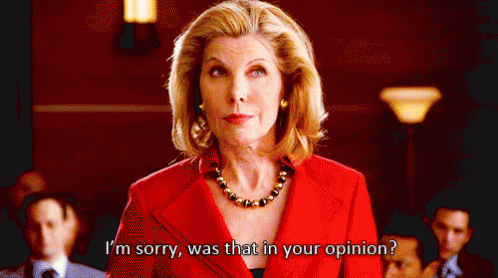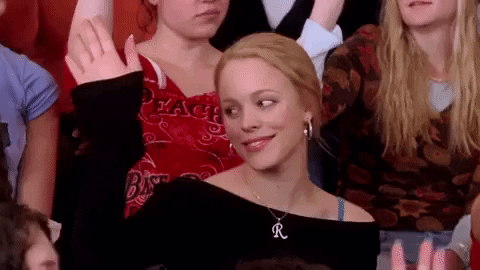Excuse Me, But Epik High Isn't a "Boy Band" 🤨
I was reprimanded after writing about more than one Korean "boy band"
People sometimes ask why the coverage of K-pop is so erratic. The same groups will be covered repeatedly, while other acts aren’t given any meaningful press. And when it comes to many local outlets, the discussion with various editors goes something like this, “We have so little space, so we can’t cover everyone.” Usually, the conversation ends after I point out that they are covering white baby bands with small followings, while neglecting Korean groups that are selling out arenas.
For what it’s worth, I’m all for covering local groups and small bands who aren’t well known. During my stint as the pop music critic for a local newspaper, I really enjoyed helping introduce new acts to the general public.
But it hasn’t been lost on me that there still is a stigma against K-pop groups. They must be robotic. They are puppets without any artistic merits. The only ones who like them are international fans — which is code for non-white fans. Why cover them? (If you couldn’t decipher my sarcasm, please understand that it was there.)
A couple weeks ago, I had the opportunity to see Epik High in concert again. It was the first time they performed in St. Louis and the city was lucky to have the critically-acclaimed hip-hop group playing there. The trio’s artistry, energy, humanity and humor are unparalleled. Previously, I’ve taken people who had never heard of the group to their shows. They left as diehard fans. No, make that stans.
So let me backtrack a bit and share how an article I wrote about Epik High got me in trouble. Not because I wrote anything libelous, but because I had written about more than one Asian group. Oh the horrors! This back-to-back coverage on Asian groups was the last straw for a couple of editors, who probably didn’t realize how racist and dense they sounded when they sent me this directive:
We’ve noticed the celebrity for the Celebrity Traveler column over the past month or so seems to be pretty consistently members of boy bands. While internationally these musicians might be well known, for our print reader demographic in the [redacted] markets, they arguably aren’t well-known.
Of course, this begs the question: If these groups are only well known “internationally,” then who is buying tickets to all of their U.S. shows? Make it make sense!
And if you truly believe your newspaper is serving a readership that only cares about white people, isn’t it your job as editors to enrich them by broadening their horizon? And for the record, my newspaper pieces are about the celebrities’ travels and how those experiences have enriched their lives. It’s not a Tiger Beat questionnaire asking about their favorite color or who they want to date. (And as someone who used to write for Tiger Beat during my school days, I firmly believe teen magazines serve their purpose as well. No offense intended.)
But getting back to the request to stop writing about boy bands… First of all, there is nothing wrong with boy bands. But if you’re going to mis-represent Epik High as a boy band, then you’re going to have to do the same with non Asian groups. Let’s see what happens if you refer to the Wu-Tang Clan, Run-D.M.C. or the Beastie Boys as boy bands. That would never happen, because it’s stupid, right? And yet Westerners have no issue flapping their lips about Asian groups without even a minimal understanding of who they are.
And for the record, Epik High’s leader Tablo is Canadian. He just doesn’t appear Canadian to people who believe that ethnically Asian people cannot possibly be North American, too.
Anyhow, perhaps worried that they were coming across as xenophobic, the editors then pretended to care about women:
They are also always male subjects.
I’m not sure how planning for subjects of these columns is done, but I wanted to pass along the concern that we’d like to see more variety.
Thanks
OK, I didn’t think this needed to be said, but boy bands are comprised of men. There are no women in them for obvious reasons. And yes, I have written and continue to write about a variety of women artists who are in girl groups and otherwise. Fifty percent, if you must know.
Unfortunately, this isn’t the first time I’ve received this kind of xenophobic feedback. (More on that in a bit.) So, I was prepared. I had a fucking spreadsheet that showed everyone I had interviewed — this was categorized by race/ethnicity and gender. I had figures for the percentage of white, Black, Latino, Asian etc. people in the United States (and the local markets). If anything, I needed to focus more on Asians and/or Asian Americans so we wouldn’t be under represented compared to census data.
Do you know who was overrepresented in my coverage? That’s right. White people. And I never heard any complaints from any editors when there was back-to-back-to-back-to-back-to-back profiles on white celebrities. Not one peep.
It is maddening that I have to literally keep receipts to justify why I occasionally write about people who look like me.
Here’s the thing. Most newspapers aren’t staffed with minorities in leadership roles. Which is why when —in the past — I sat through meetings with blonde women referring to Indian Americans as slurs, I was the only POC in the room and the only one not laughing. Or was told that I couldn’t write about a local Korean American rock musician because we already wrote about … a classical musician who’s Chinese American. To these misguided editors, one Asian is enough. Two Asians is overkill. Three Asians will get you called in to the office to be reprimanded. (Actually, this happened to me when I included just two Asian Americans in one article. The editor was livid that the photograph — which I didn’t shoot, by the way — had no “diversity” in the shot. Lady, do you even know what diversity means?!)
Who would’ve thought that these views from the late 1990s would remain in the 2020’s?
And… If you’d like to read more about Epik High, I wrote about them in January for Rolling Stone.
© 2023 JAE-HA KIM | All Rights Reserved




The demographic that these editors belong to is the same one the radio station managers, US recording industry, grocery conglomerates and most members of Congress belong to: old, out-of-touch white men. There. I said it. In the not-too-distant future, they will be a true minority. Similar attitudes are prevalent in the UK and the European Union. White, male DJ's and editors just don't get it. So while your frustration is palpable, I truly feel you are making a difference. So stand your ground! (And a good spreadsheet is a thing of beauty!!!!!)
i'm so glad i found your substack. i'm using k-dramas lately as a gateway to learn more about my roots (i'm adopted). it's been so difficult to find worthwhile sources about korean culture in english, other than a simple list of already well-known "best k-dramas." i look forward to becoming a fan of anything you might cover here that i would have missed out on otherwise!